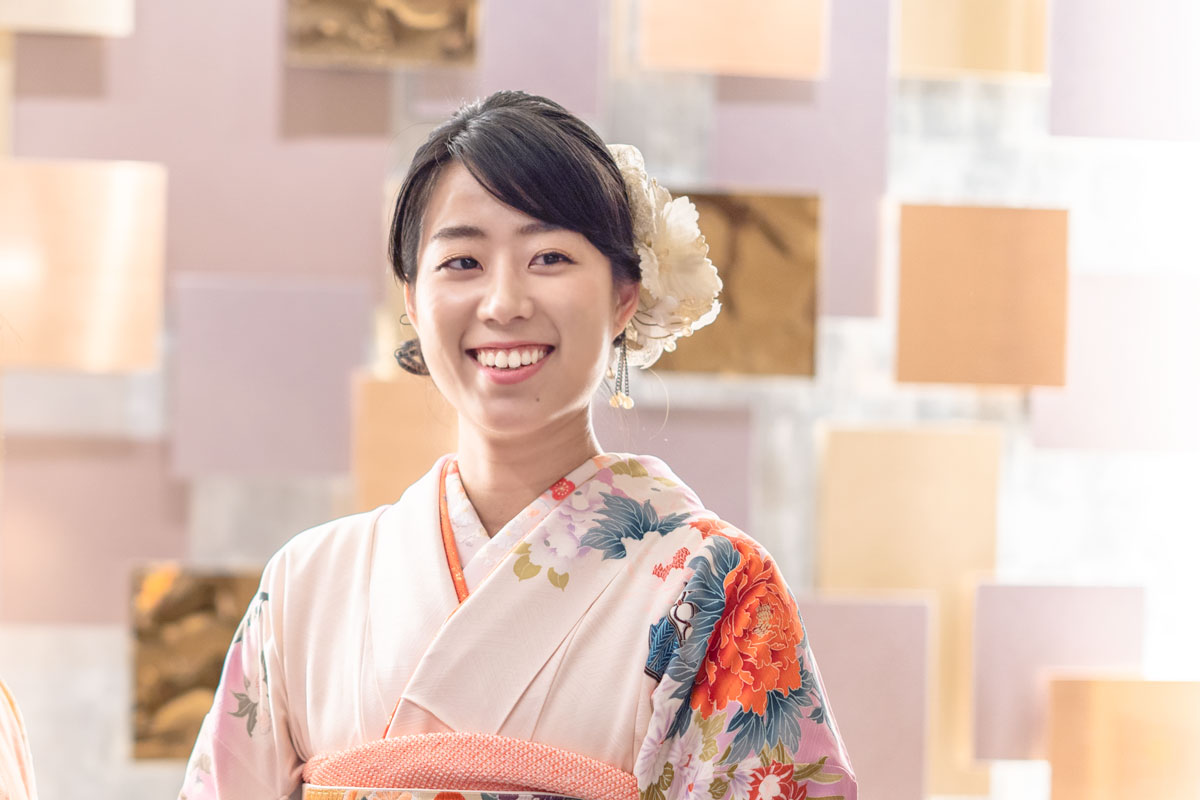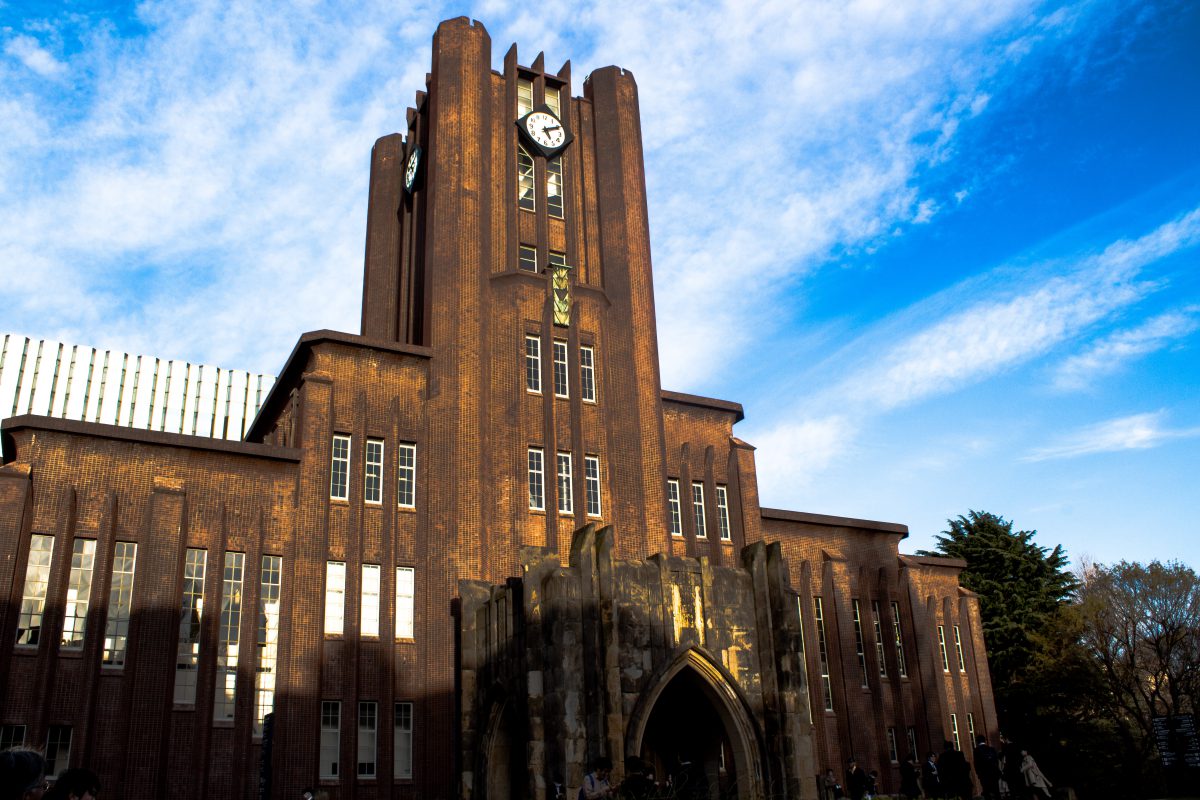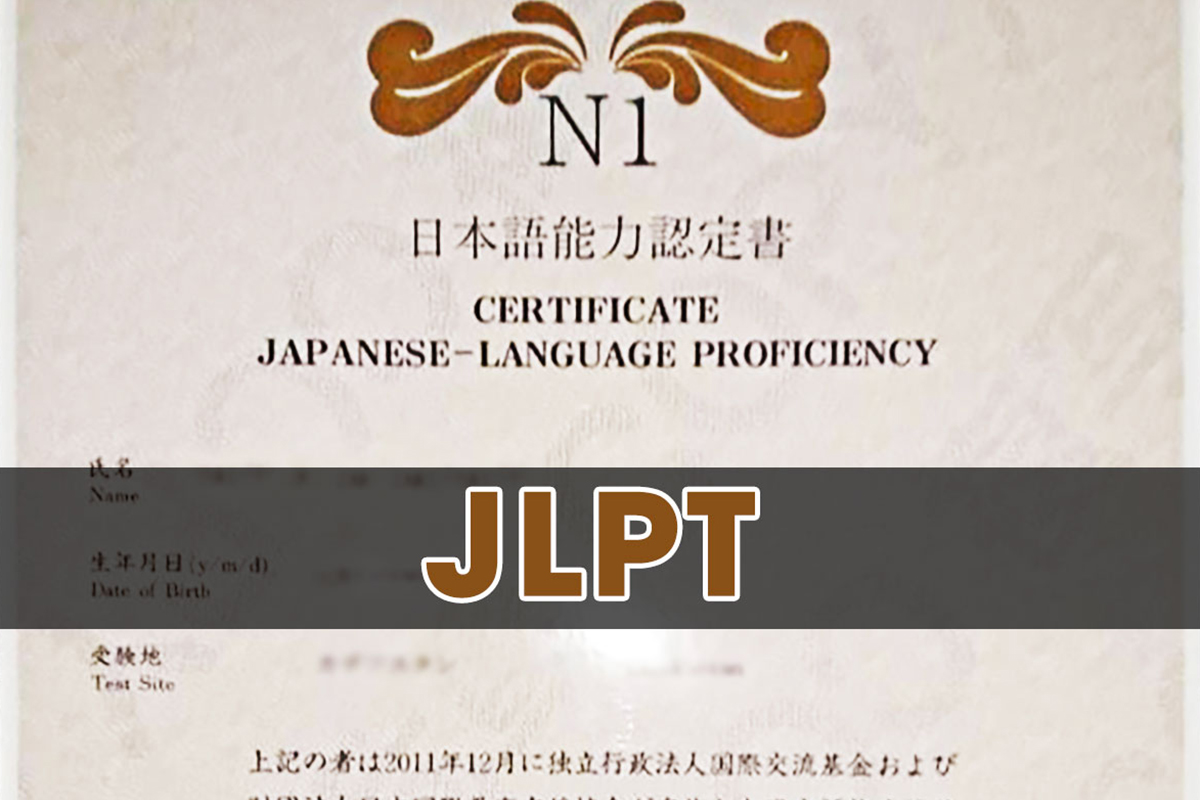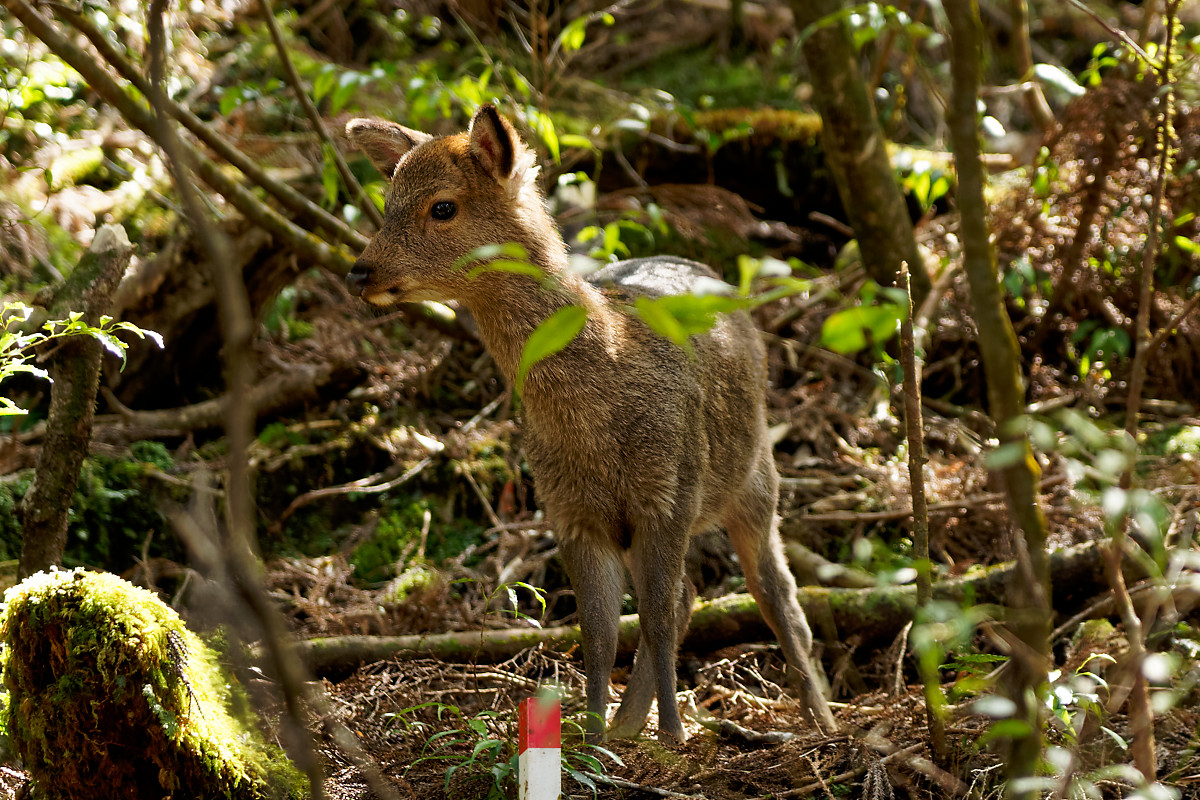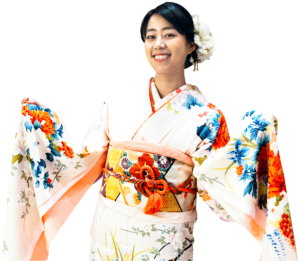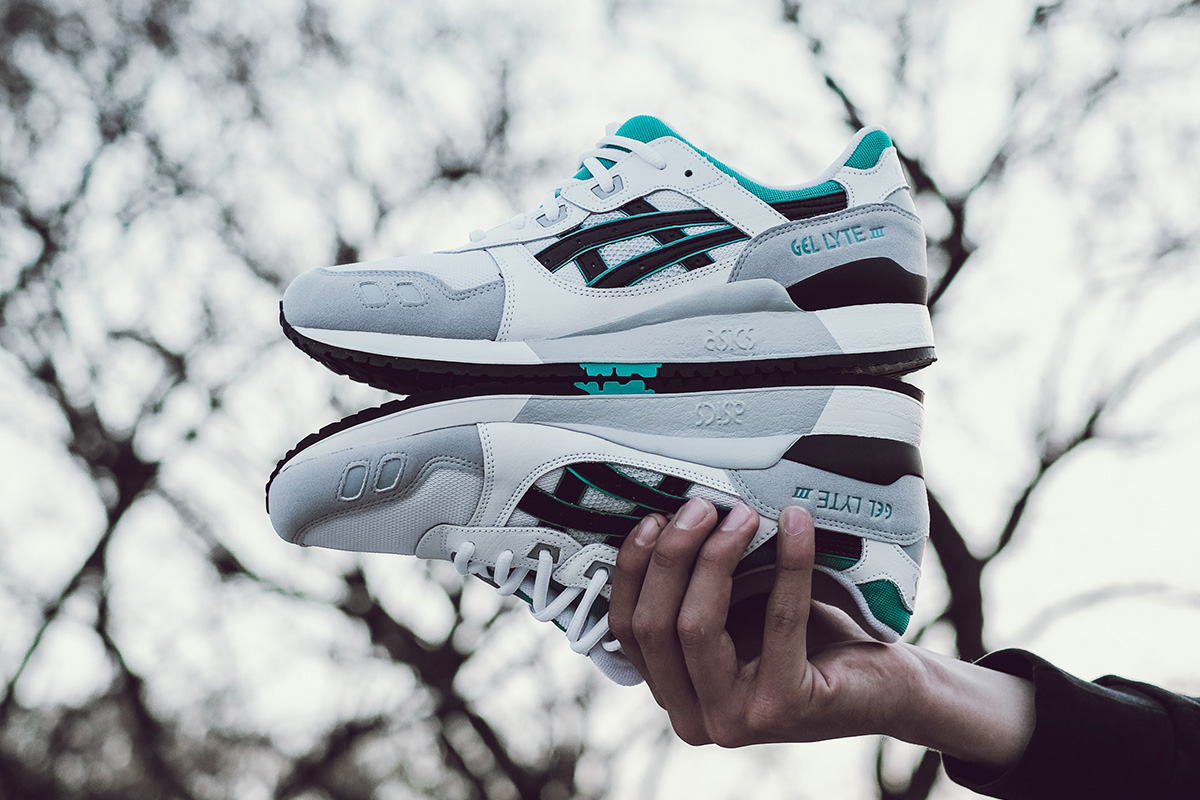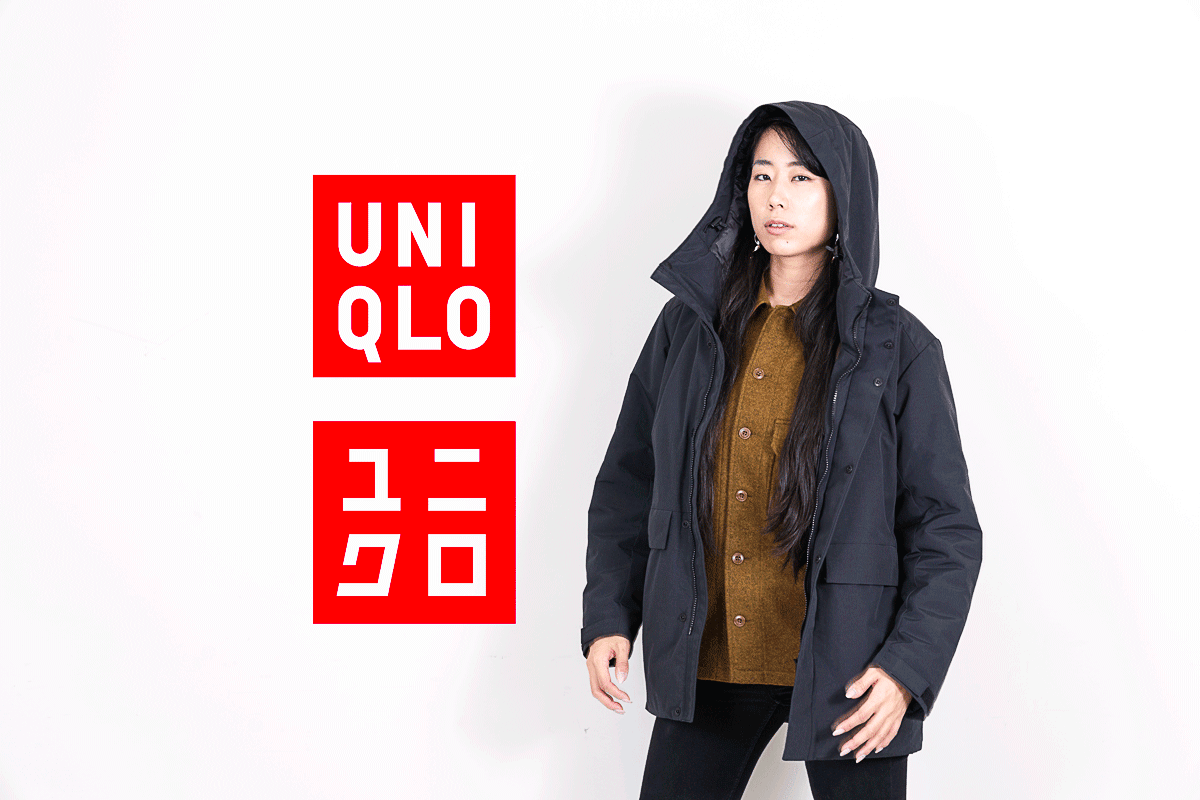Japan is such a unique country. We have our culture mixing Asian and American tastes. The Japanese language: Nihongo, hase 3 different script components: hiragana, katakana, and kanji, therefore it makes it hard to read. On the other hand, speaking is very simple and most foreigners can pronounce things very easily (then accents become the key to speaking Japanese well).
I don’t want to frighten you but… most Japanese do not speak English fluently, especially in a small city. If you are in Tokyo, you can at least try to speak easy English but most of the times they will answer you in Japanese even if they understand what you said. This time, I’m gonna teach you very, very useful Japanese words and phrases to enjoy your trip or life in Japan. By the way, if you are planning to come to Japan, check out the article!
In Japanese, most of the times there are different levels of politeness from casual to polite. Talking about polite Japanese expressions, there are again many classifications which are pretty annoying even for native Japanese speakers. In fact, if we don’t know how to use those polite expressions, we are treated as non-educated people.
In general, as I mentioned, there are too many different ways to say the same thing, depending on the relationship, therefore, I choose one casual and one polite way which are used the most in daily life. From now, if I note two words to say the same thing, the former is the casual way and the latter is the polite way in Japanese. Because speaking the polite way is often longer than the casual way and hard to remember, if you’re a foreigner, you can use the casual way. If you’re obviously a foreigner, we don’t care if you use the casual forms.
* If I think you need to learn only the polite form, then I’ll note it.
SIMPLE JAPANESE GREETING WORDS YOU MUST KNOW
To begin, let’s learn about simple Japanese greeting words. If you come to Japan for traveling, you’d better know all these Japanese phrases.
Hello in Japanese

How to say hello in Japanese?
Konnichiwa (こんにちは)
Good morning in Japanese

How to say good morning in Japanese?
Ohayo (おはよう)
or
Ohayogozaimasu (おはようございます)
Good evening in Japanese
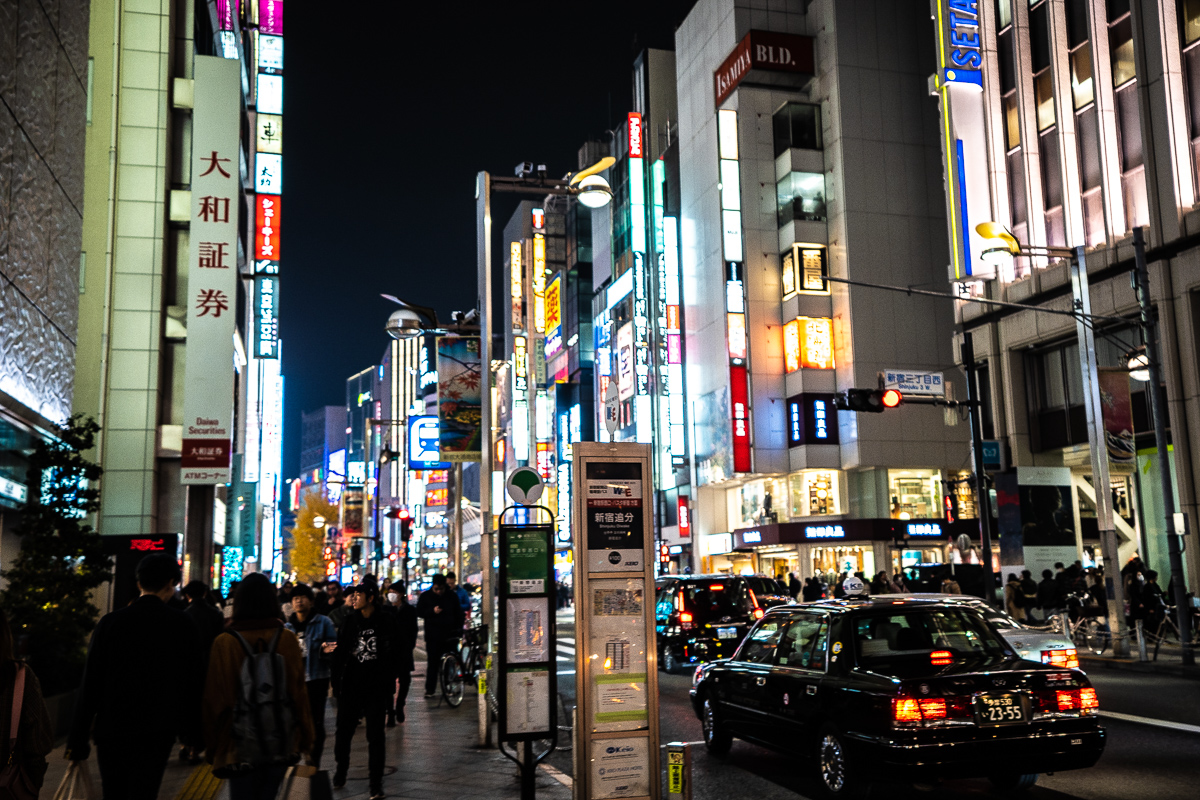
How to say good evening in Japanese
Konbanwa (こんばんは)
Good night in Japanese
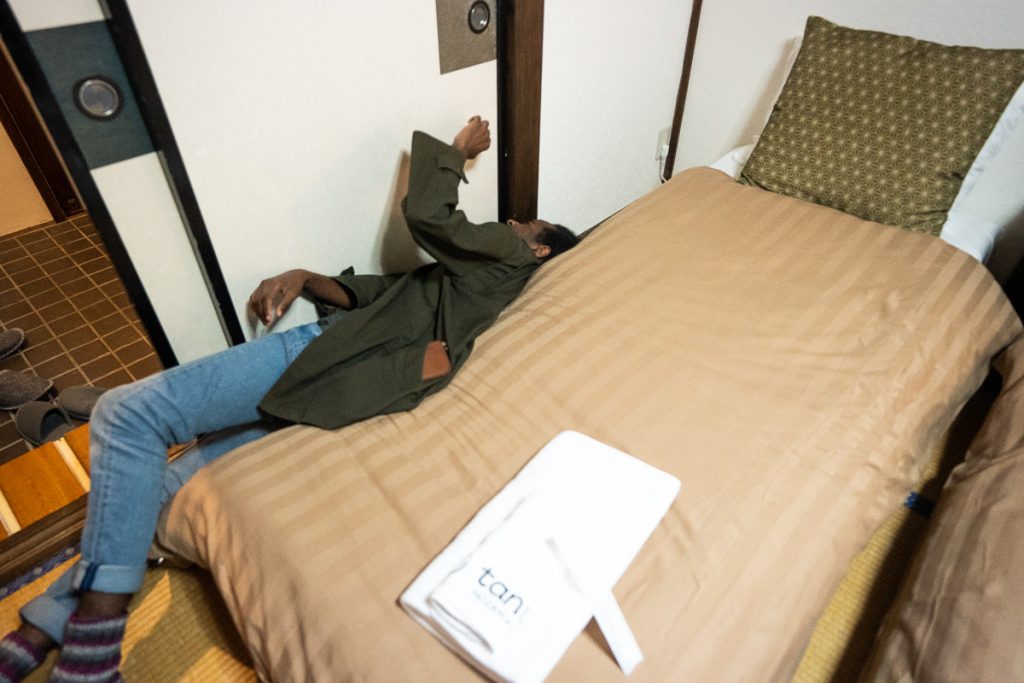
How to say good night in Japanese?
Oyasumi (おやすみ)
or
Oyasuminasai (おやすみなさい)
Thank you in Japanese
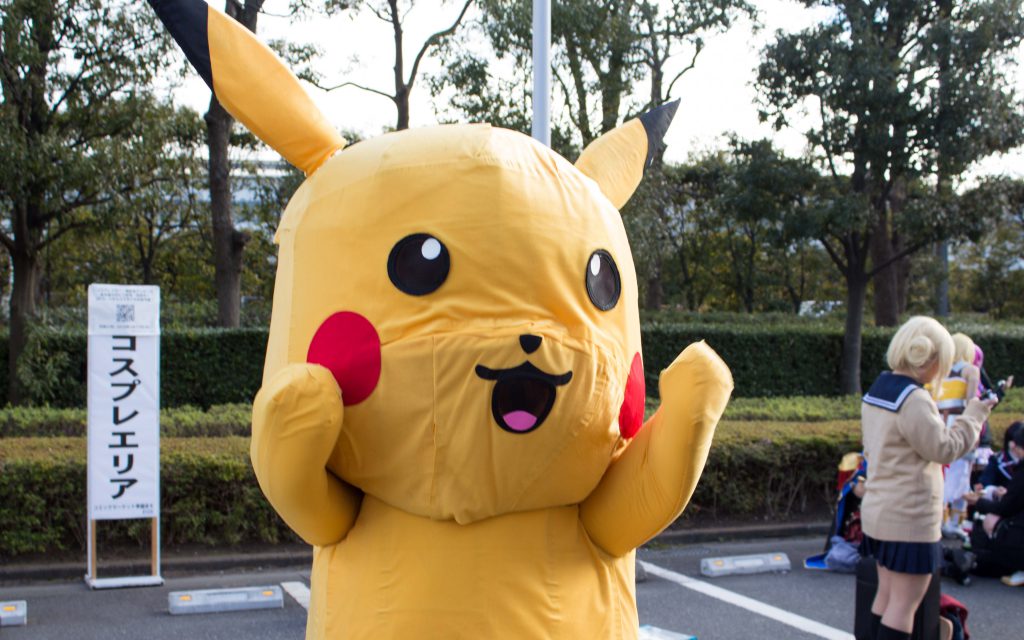
How to say “Thank you” in Japanese?
Arigato (ありがとう) or Arigatogozaimasu (ありがとうございます)
Sorry in Japanese
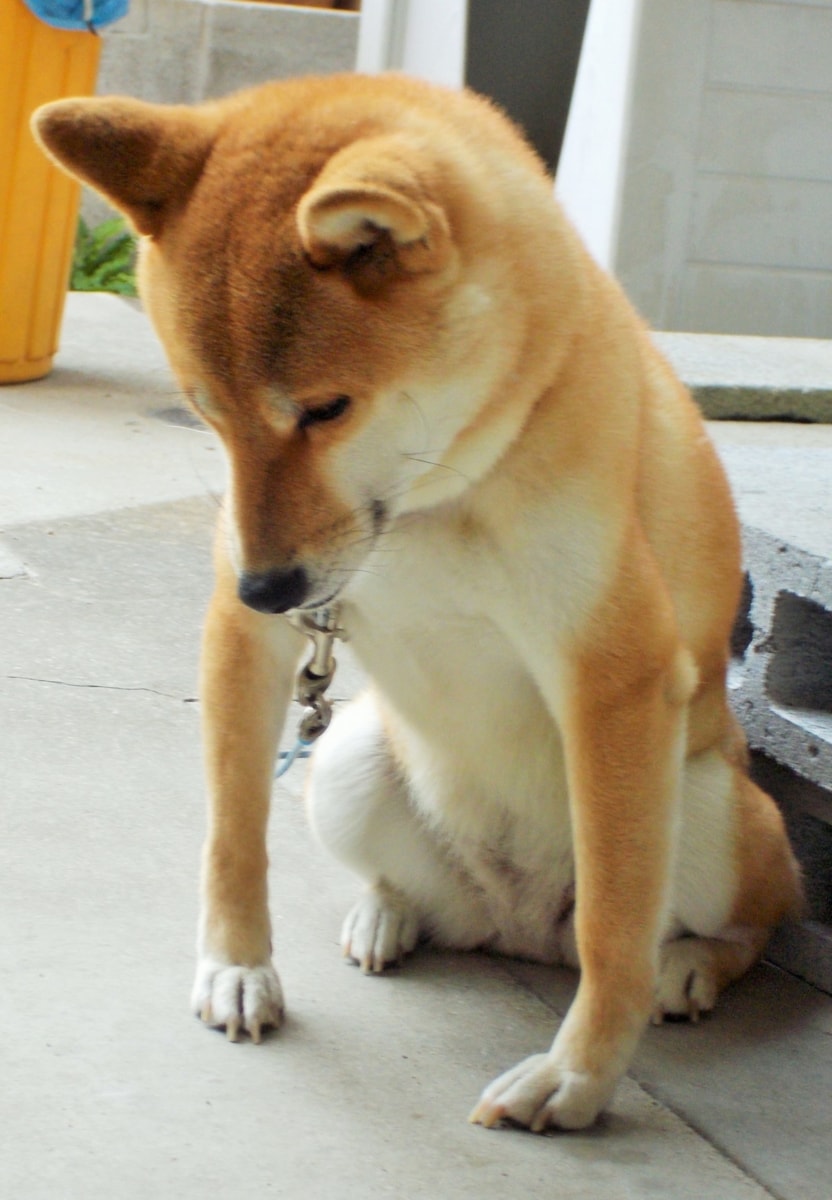
How to say “Sorry” in Japanese?
Gomen/Gomennasai (ごめん/ごめんなさい)
‘Gomen’ or ‘Gomennasai’ are used for serious apologies. If it’s not that big of a deal, use “Excuse me” which I’m gonna explain next.
Excuse me in Japanese
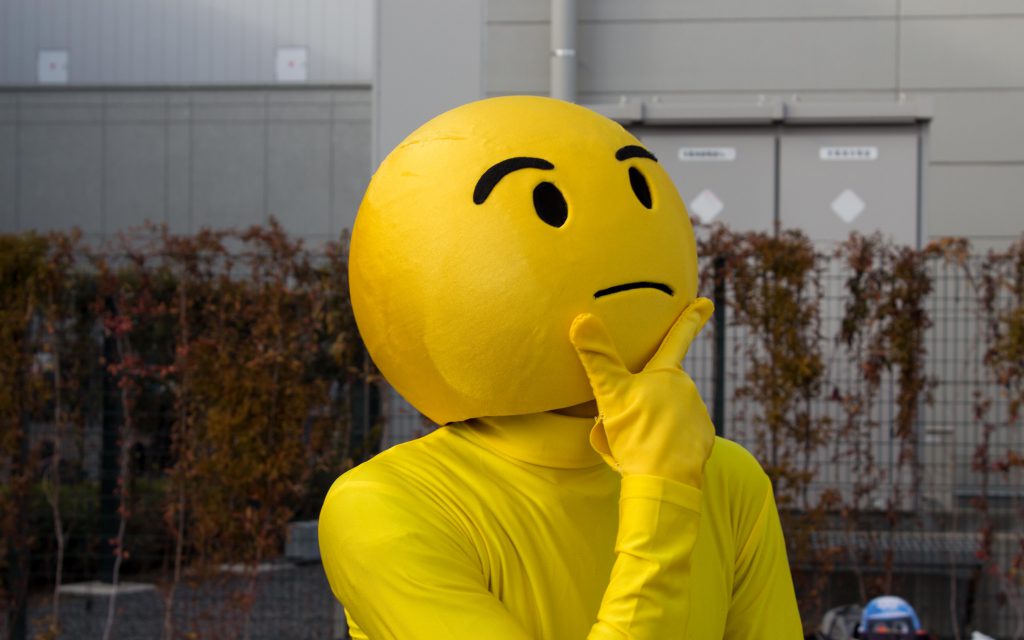
How to say “Excuse me” in Japanese?
Sumimasen (すみません)
I’d say… Japanese love to use “Sumimasen” in daily life. If you bump into someone while walking, are asking a favor, etc., you can say ‘Sumimasen’. Also, we use this word as “Thank you” too. For example, I drop something on the floor and someone picks it up for me, I’d say “Sumimasen.”
How are you in Japanese
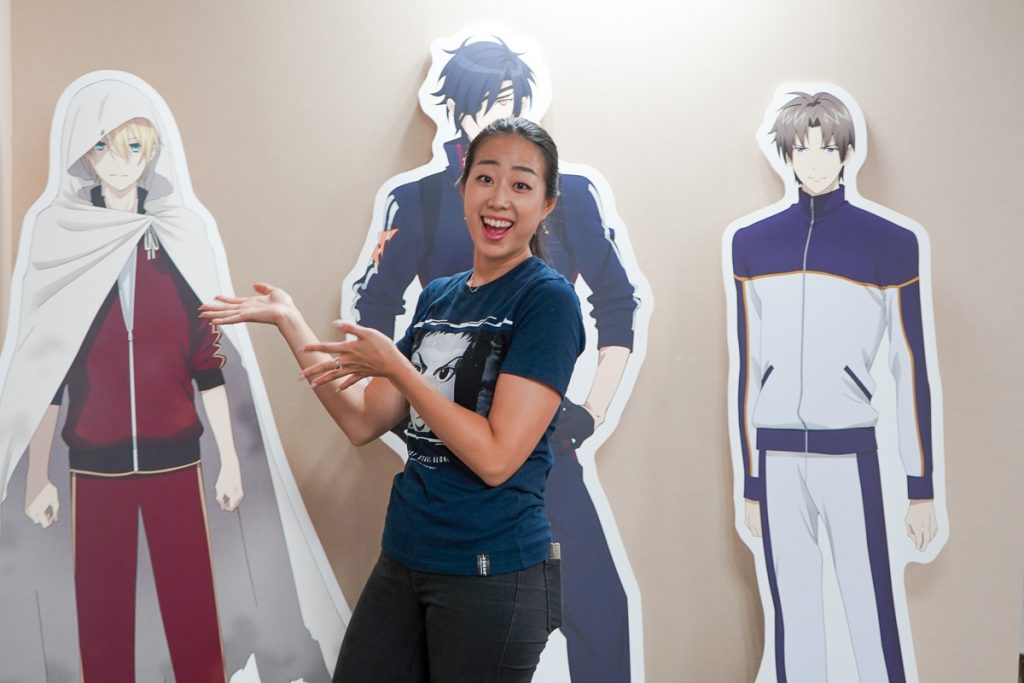
How to say “How are you?” in Japanese?
Genki? (元気?)
or
Ogenkidesuka? (お元気ですか?)
Beautiful in Japanese
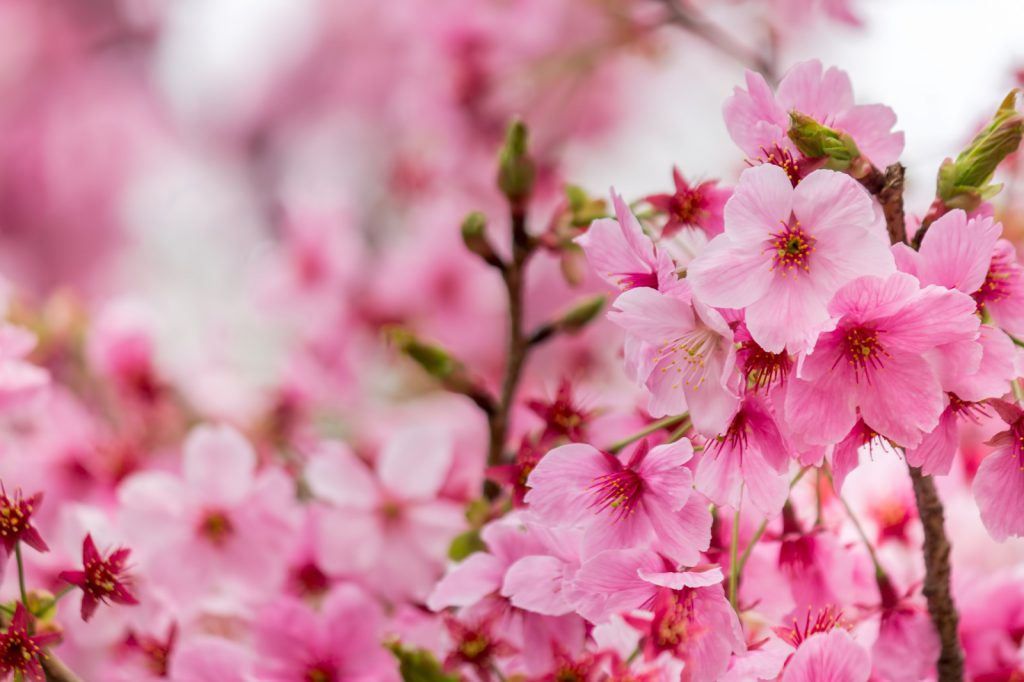
How to say “Beautiful” in Japanese?
Utsukushii (美しい)
or
Utsukushiidesu (美しいです)
Kirei (綺麗)
or
Kireidesu (綺麗です)
There are two main ways to say ‘beautiful’ in Japanese. ‘Utsukushii’ or ‘Utsukushiidesu’ is a more polite and elegant way to say it. On the other hand, ‘Kirei’ or ‘Kirreidesu’ is a more casual or familiar way. For example, among my friends, I use ‘Kirei’ most of the times.
Cool in Japanese
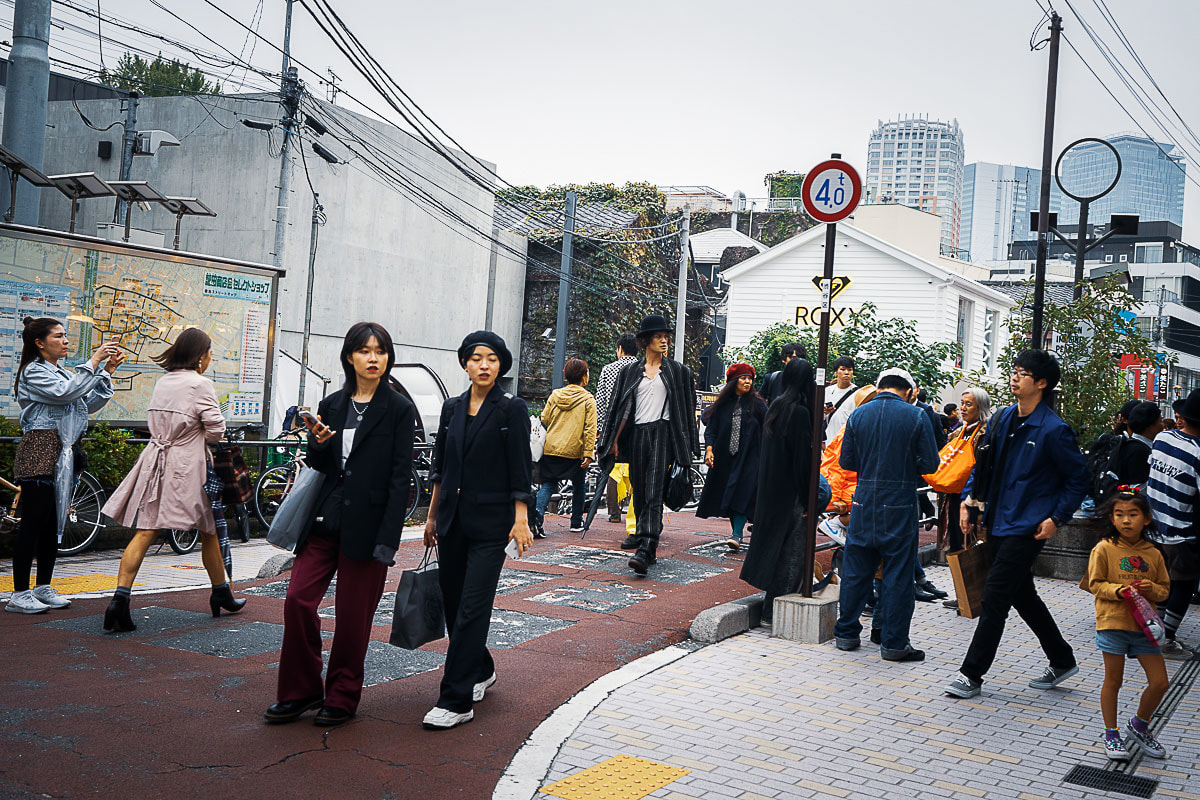
How to say “Cool” in Japanese? I’m not talking about coldness by the way.
Kakkoii (かっこいい)
or
Kakkoiidesu (かっこいいです)
If you’ve already watched Japanese anime, I’m pretty sure that you’re familiar with these words: ‘Kakkoii’ or ‘Kakkoiidesu’. Very practical Japanese words!
Cute/pretty in Japanese
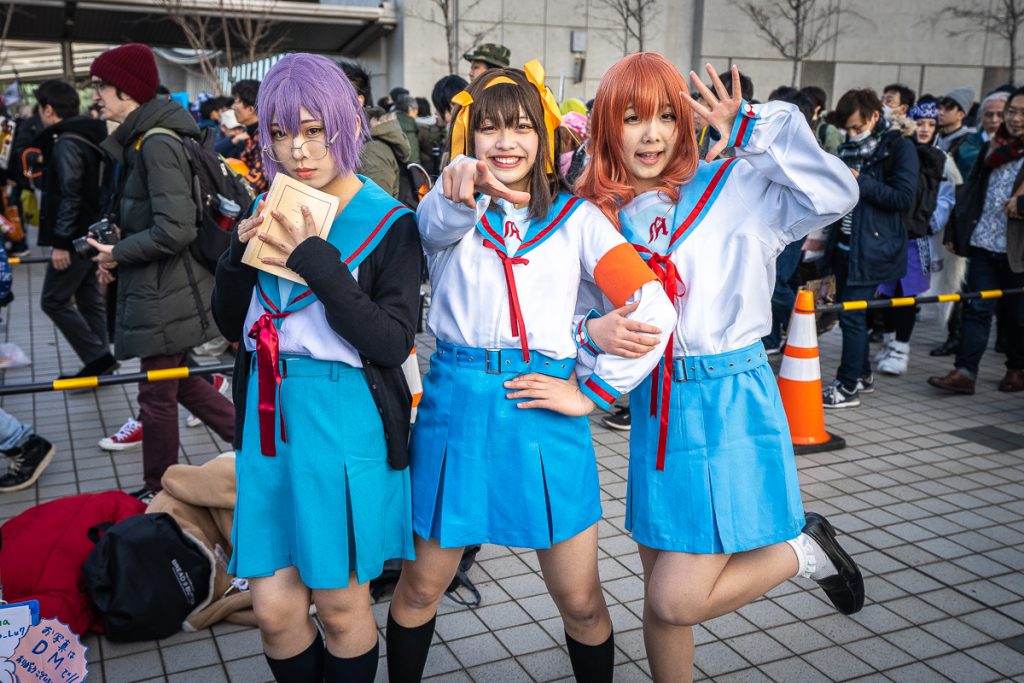
How to say “Cute/pretty” in Japanese? I’m not talking about coldness by the way.
Kawaii (かわいい)
or
Kawaiidesu (かわいいです)
The word “Kawaii” is pretty a global at this point. There is a “Kawaii style” in fashion, for example. As an aside, if you’re looking for cute Japanese items, don’t forget to go to Daiso: 100 yen shop ($1 shop) in Japan!
You’re welcome in Japanese
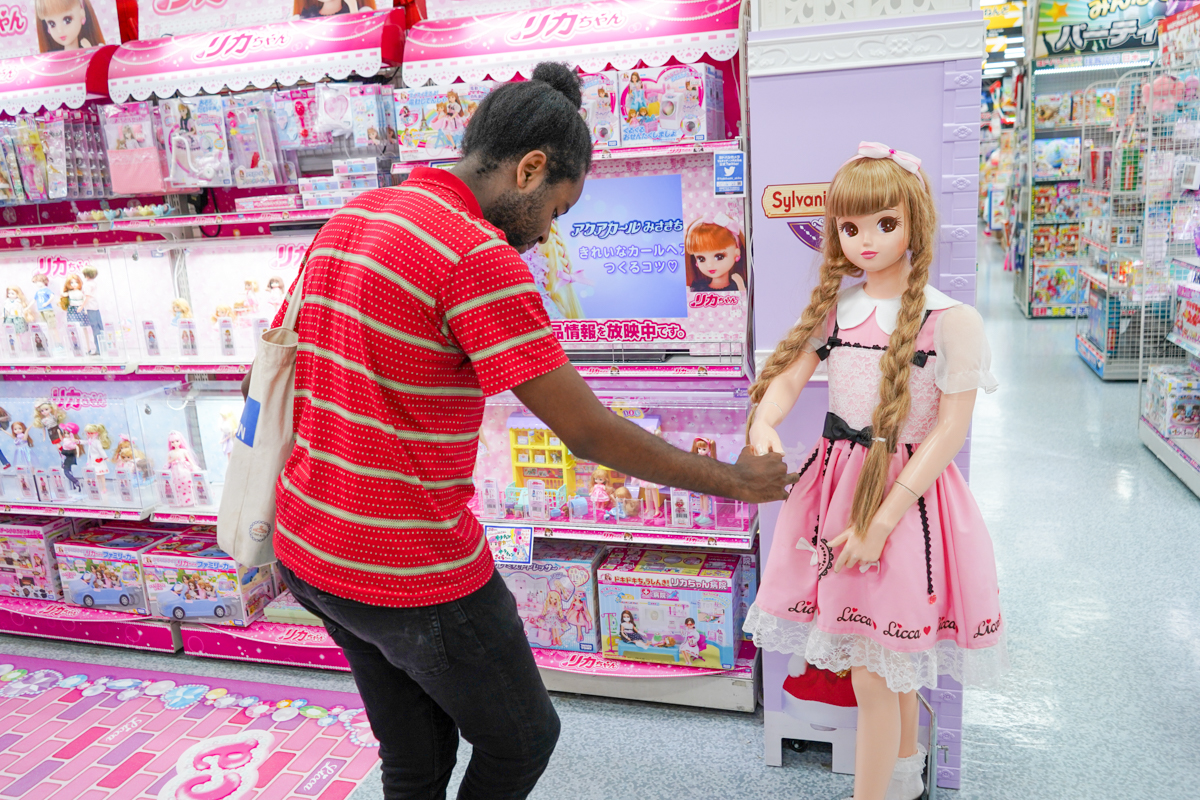
How to say “You’re welcome” in Japanese?
Doitashimashite (どういたしまして)
Bye in Japanese
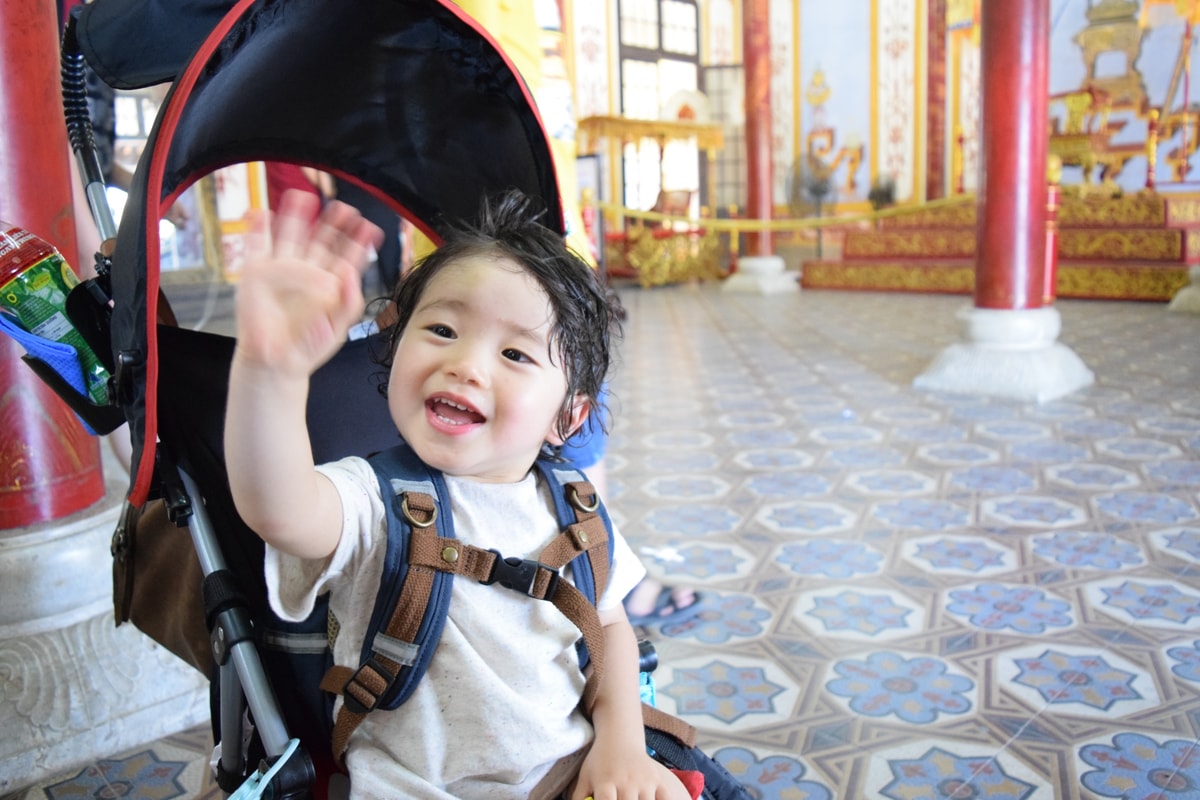
How to say “Bye” in Japanese?
Matane(またね)
or
Sayonara (さようなら)
‘Matane’ for friends and ‘Sayonara’ for those you’re less casual with.
Yes/no in Japanese
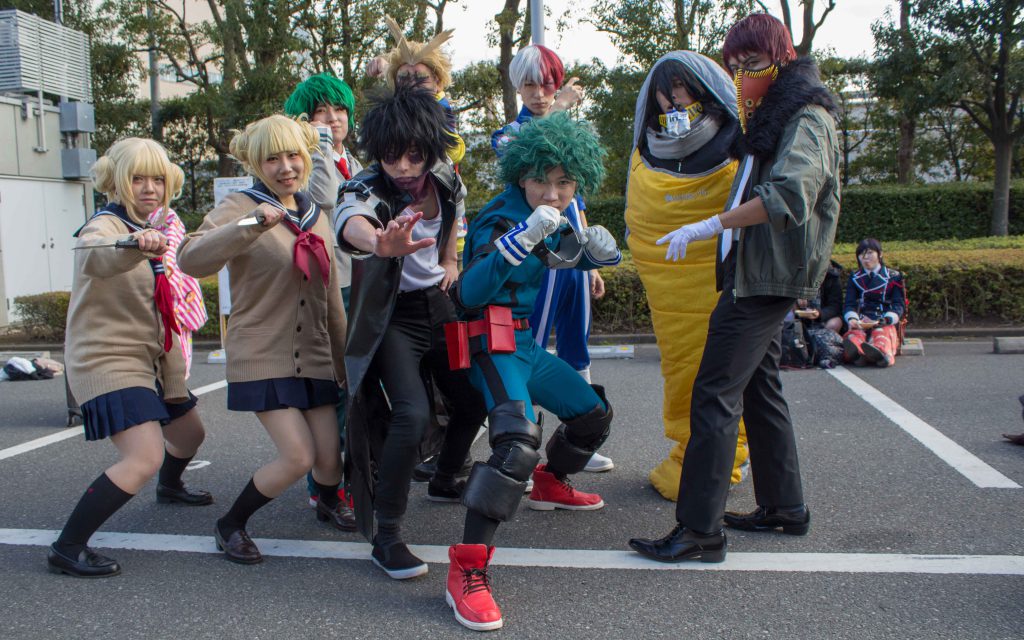
How to say “Yes/No” in Japanese?
Hai(はい) / Iie(いいえ)
or
Un(うん) / Uun(ううん)
Saying ‘Hai’ and ‘Iie’ won’t be too hard to pronounce. However, ‘Un’ and ‘Uun’ are tricky. They sound similar but ‘Uun’ should be longer than ‘Un’. For not to make Japanese misunderstand, it’s better to use body language while saying the word. If it’s yes, nod your hand and if it’s no, shake your head.
USEFUL JAPANESE PHRASES YOU CAN TRY TO USE

From now on, I’m gonna teach you some useful Japanese phrases in a polite way which you can try to use while staying in Japan. It’a bit longer than what we learned above but I recommend you to try those Japanese phrases, especially where nobody speaks English.
I can’t understand in Japanese
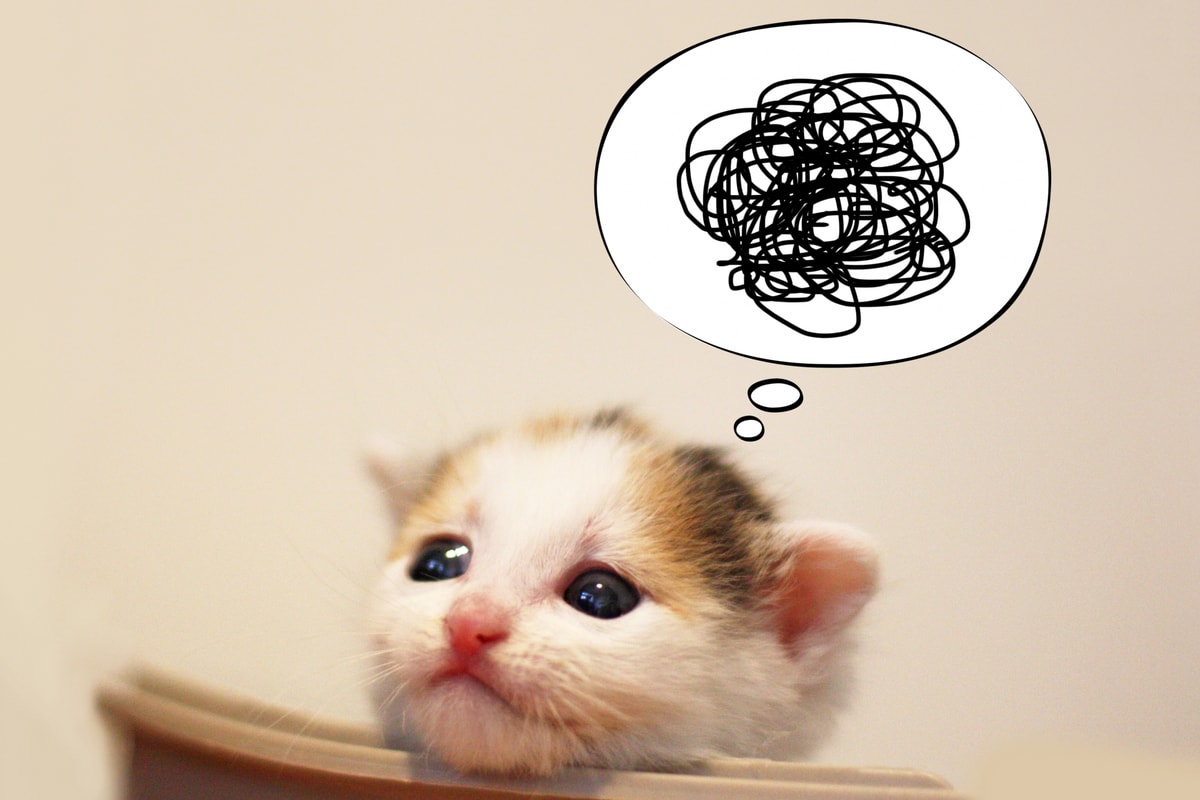
How to say “I can’t speak Japanese” in Japanese?
Nihongo wa wakarimasen (日本語は分かりません)
If the someone starts speaking in Japanese and you have no idea what to say, say “Nihongo wa wakarimasen”.
I want to go here in Japanese
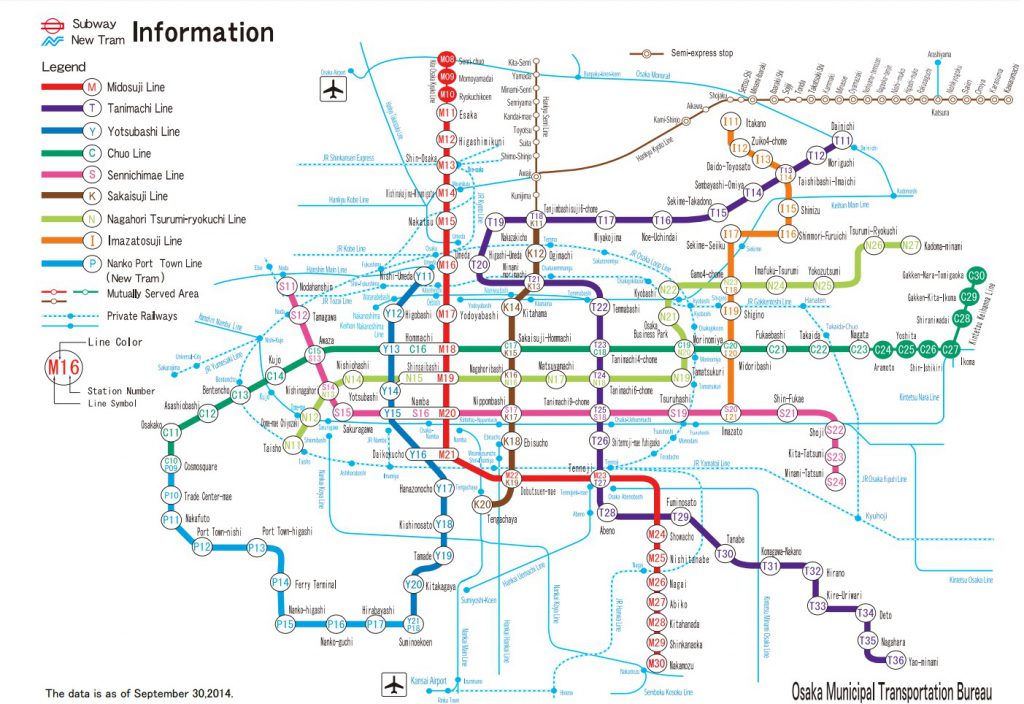
How to say “I want to go here” in Japanese?
Koko ni ikitaidesu (ここに行きたいです)
If you want to go somewhere but don’t know how to, just point out the name of the place or to a map map and say “Koko ni ikitaidesu”.
By the way, if you want to ask for directions, station workers or police officers will happily help you. In Japan, the police is usually pretty helpful.
Is it correct? in Japanese
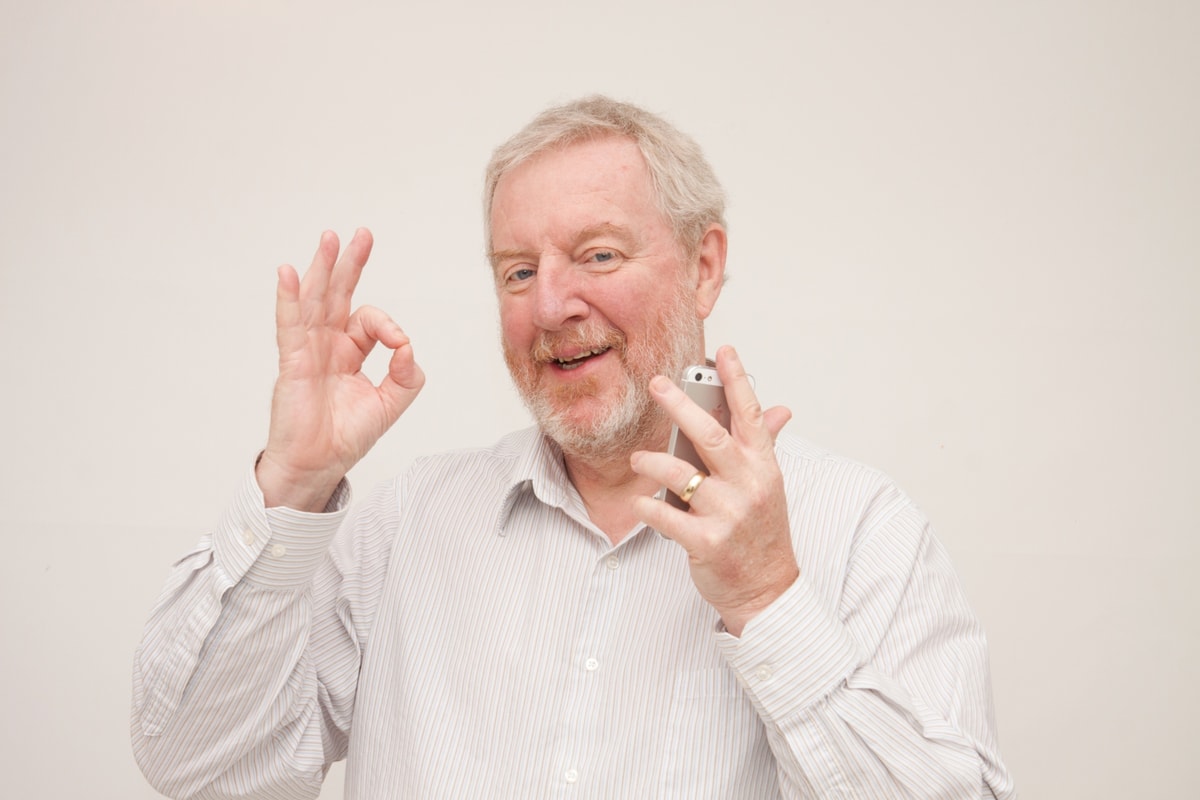
How to say “Is it correct?” in Japanese?
Attemasuka? (合ってますか?)
For when you want to make sure of something like destination, train, etc., and need to show the information to check if it’s correct. For example, you have a train ticket and ask someone by saying “Attemasuka?”
Where is the restroom? in Japanese
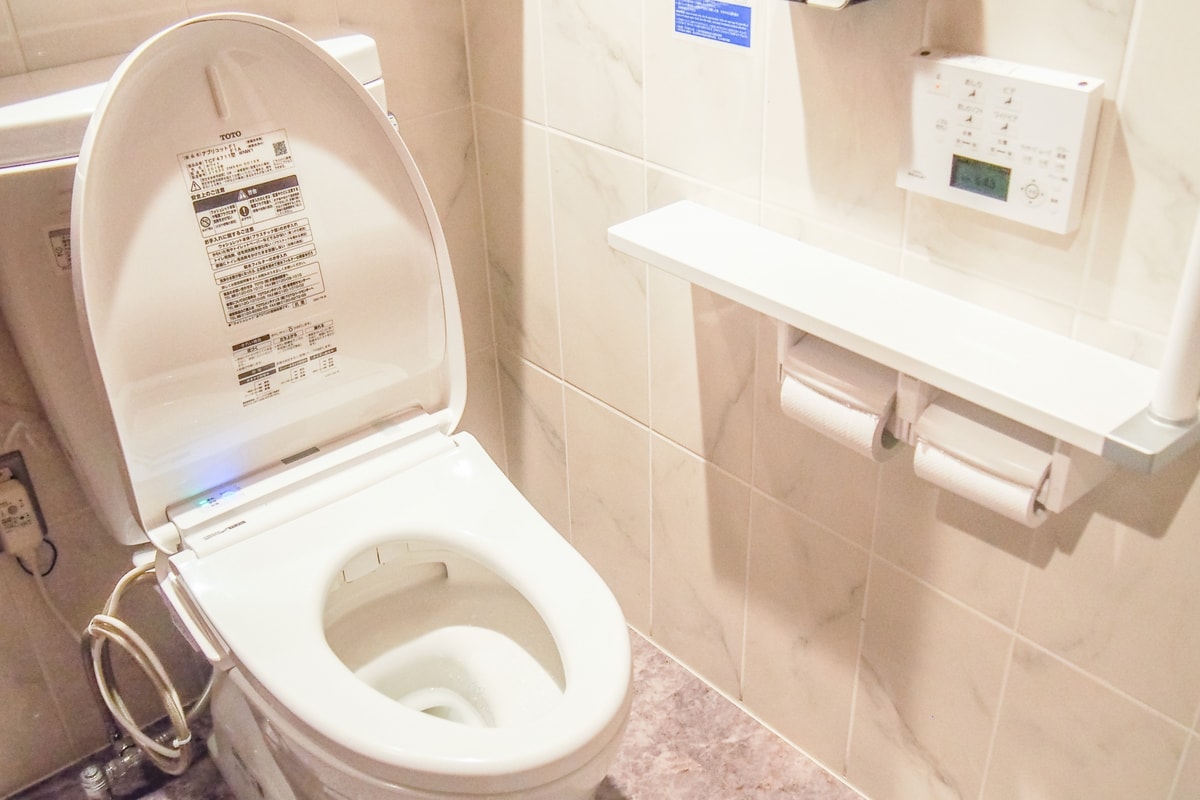
How to say “Where is the restroom?” in Japanese?
Toire wa dokodesuka? (トイレはどこですか?)
One of the things I really like about Japan is that free toilets are everywhere. However, if you go to the countryside where there are not so many toilets, you may need to ask “Toire wa dokodesuka?” in case of emergency.
One more time, please? in Japanese
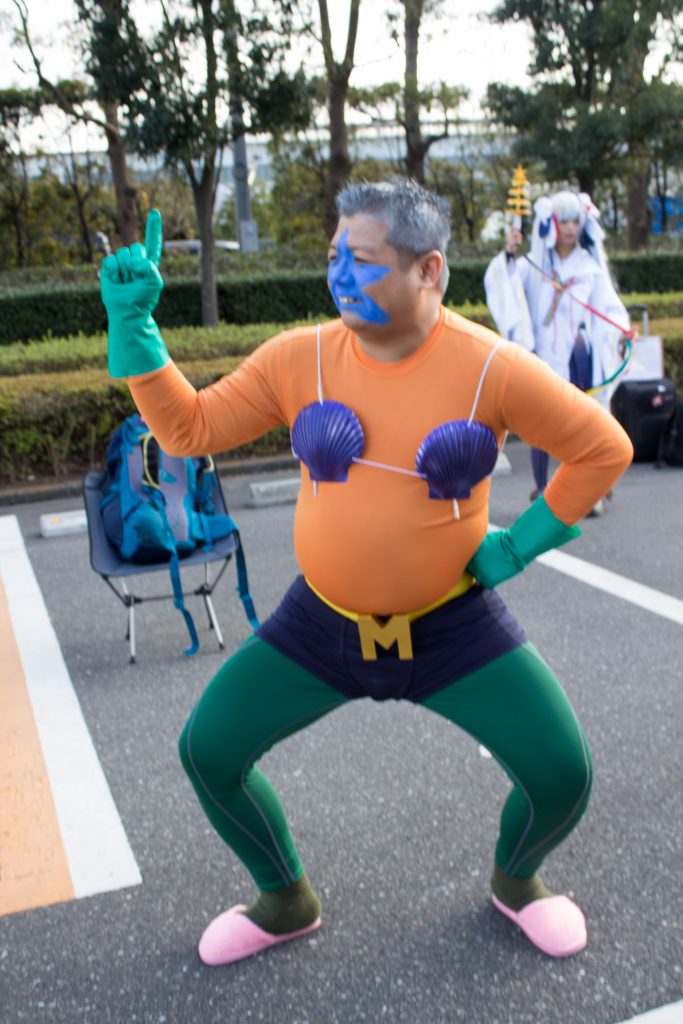
How to say “One more time, please?” in Japanese?
Mouichido onegaishimasu? (もう一度お願いします)
If you want someone to repeat something they’ve said or to to show you something again, you can say “Mouichido onegaishimasu”.
Who, what, when, where, why? in Japanese

How to say “Who, what, when, where, why?” in Japanese?
Dare desuka, Nan desuka, Itsu desuka, Doko desuka, Naze desuka (誰ですか、何ですか、いつですか、どこですか、なぜですか)?
Simple, add ‘desuka?’ at the end. Especially, “when? / where?” would be “Itsu desuka? / Doko desuka?” those you must-remember while traveling in Japan.
BASIC JAPANESE PHRASES TO INTRODUCE YOURSELF

The final step for leaning Japanese on this article is to introduce yourself. Here are the basic Japanese phrases you need to know.
Nice to meet you in Japanese
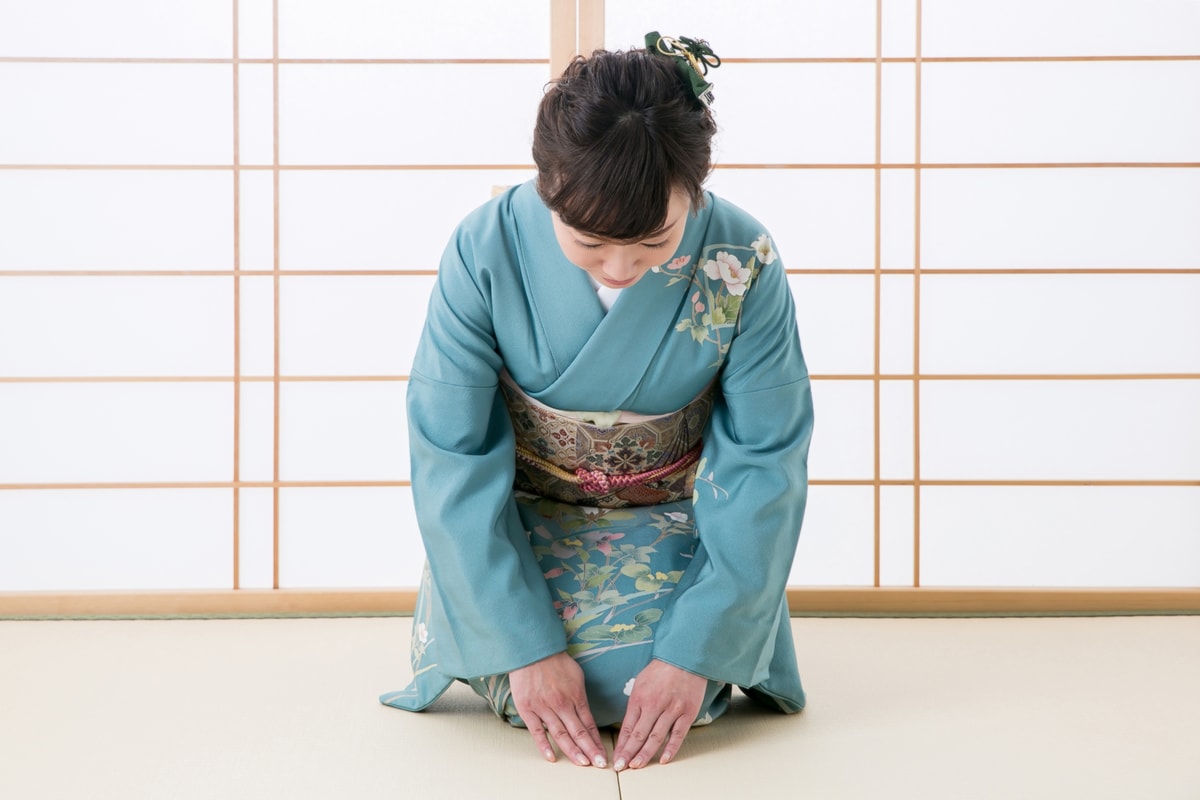
How to say “Nice to meet you” in Japanese?
Hajimemashite (はじめまして)
The first Japanese word you say to introduce yourself is ‘Hajimemashite’ with a big smile.
I’m (name…) in Japanese
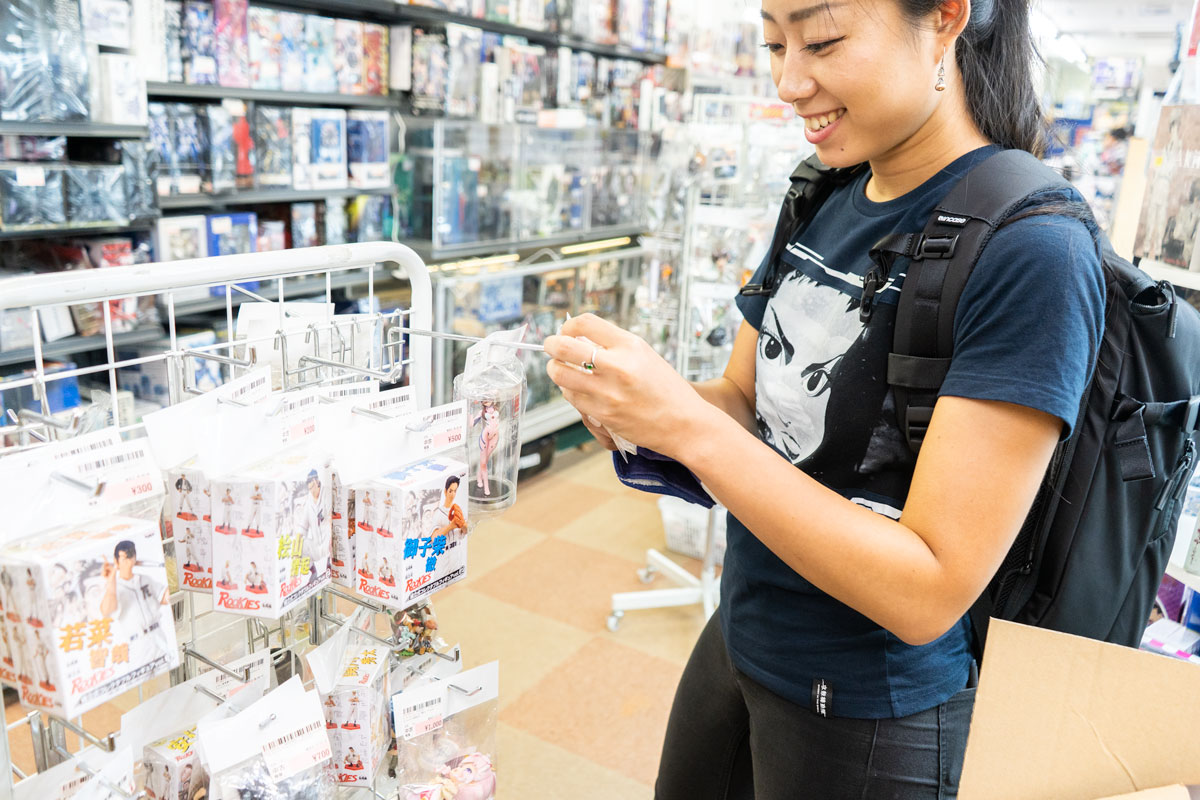
How to say “’I’m (NAME…) ” in Japanese?
Watashi wa … desu (私は…です)
In my case, “I’m Mona” = “Watashi wa Mona desu”. You also can cut out ‘Watashi (I)’ if you prefer to shorten it into: “Mona desu”.
I’m from (country name…) in Japanese
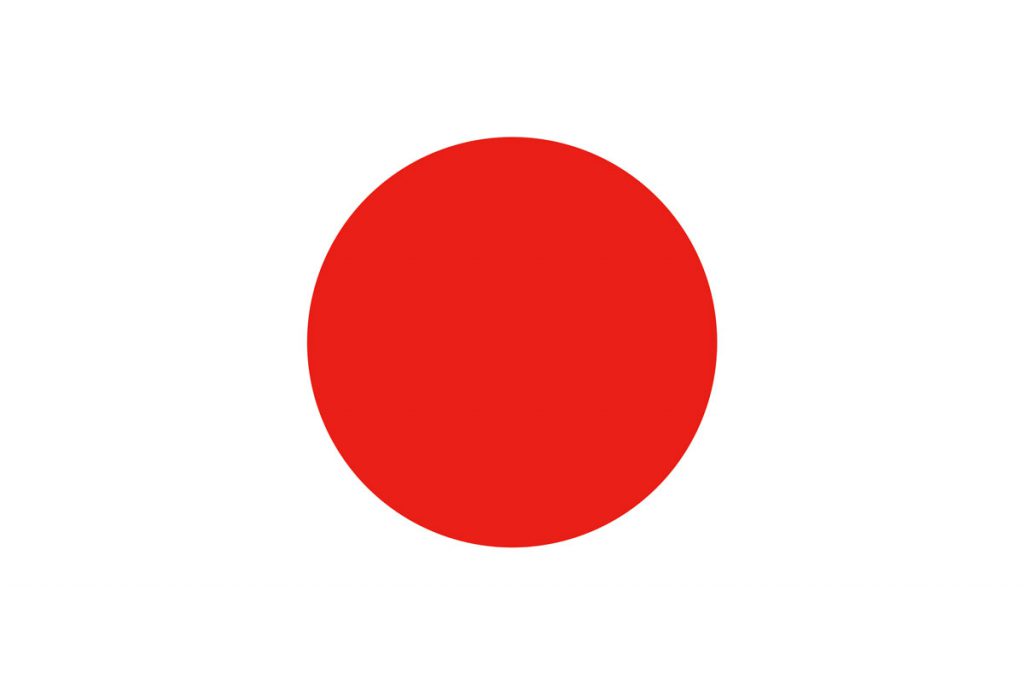
How to say “I’m from (country name) ” in Japanese?
Watashi wa … kara kimashita (私は…から来ました)
In my case, “I’m from Japan” = “Watashi wa Nihon kara kimasita”.
For your country name, you can say it in English because most country names are pronounced similarly in Japanese so Japanese people can understand.
Yoroshiku onegaishimasu
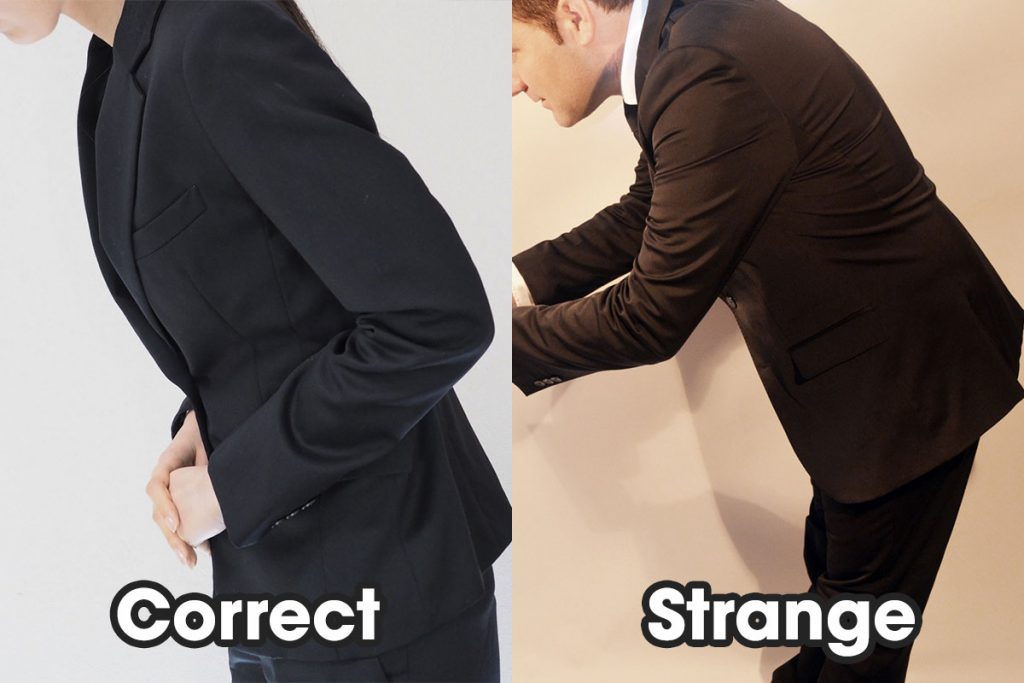
Yoroshiku (宜しく) / Yoroshiku onegaishimasu (宜しくお願いします)
There isn’t a straightforward way to translate “Yoroshiku onegaishimasu” from Japanese to English. It’s definition in Japanese changes dramatically case by case, as well. It’s often translated as “please take care of me”. It’s something you use after “Hajimemashite” when you meet someone, you can also use it when asking someone for a favor.
THE JAPANESE WORDS YOU WILL HEAR WHILE STAYING IN JAPAN
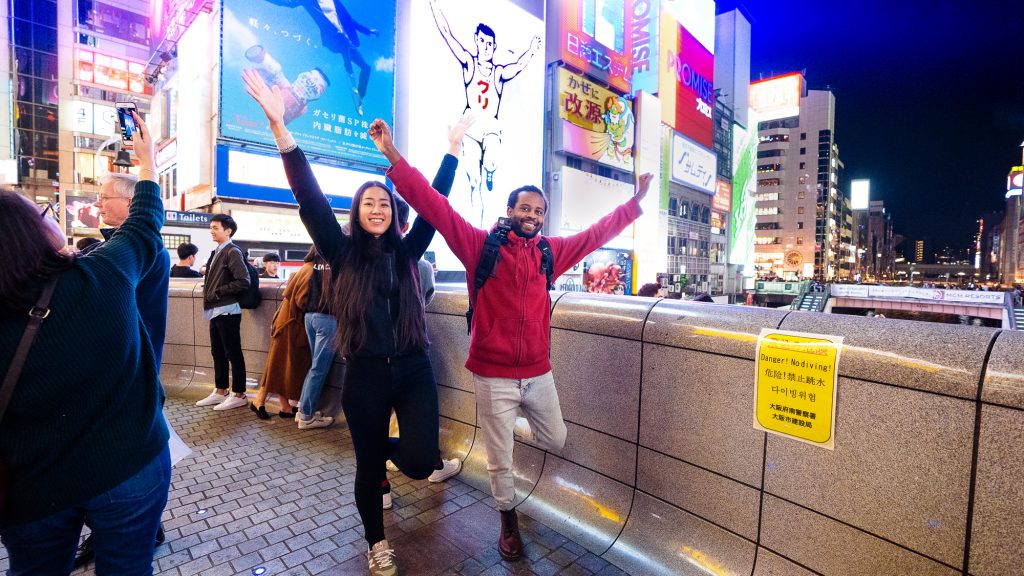
From here, I’d explain some Japanese words you will definitely hear while traveling or living in Japan.
Welcome in Japanese
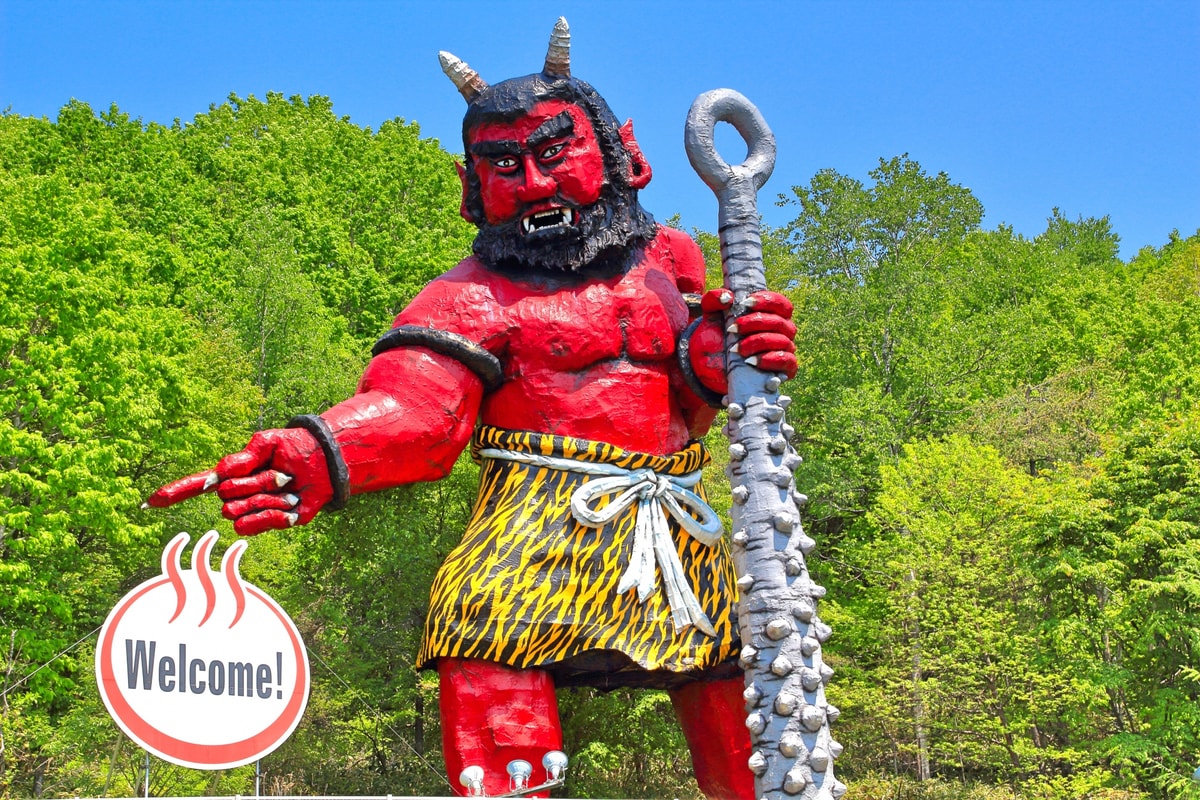
How to say “Welcome” in Japanese?
Yōkoso (ようこそ) or Irasshaimase (いらっしゃいませ)
The words above are used in different situations: Yōkoso is for a country or event like “Welcome to Japan” or “Welcome to our party”, etc. Irasshaimase is what workers in a shop or restaurant will say as you enter.
LEARNING JAPANESE FURTHER

A lot of people in Japan are pretty shy and don’t have the confidence to speak in English. Therefore, when a foreigner speaks a few Japanese words such as hello or thank you, it makes us ultra happy!
I’ve explained to you the easiest Japanese words but you may have to look for more words and phrases depending on the situation. I made a simple list here to make it easy so print it out and keep it with you while traveling or staying in Japan!
To end, if you want to learn the Japanese language further, here are some useful blogs,
Here is my last message… 🙂

